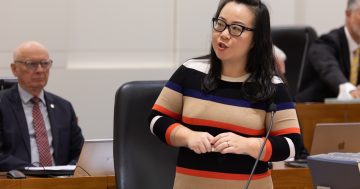
Independent Property Group is concerned the LVC is holding back smaller developments in established suburbs.
The Independent Property Group has joined industry calls for changes to the ACT Government’s lease variation charge, calling it a blunt instrument that will force residents to live in houses they can no longer maintain and hinder the revitalisation of established suburbs.
Independent Property Group’s Executive Director, Wayne Harriden also said he was concerned about recent comments by Chief Minister Andrew Barr where he claimed he would no longer participate in the debate surrounding the LVC.
Mr Harriden and industry colleagues are urging the ACT Government to review the current LVC scheme, calling on Andrew Barr to work with the property industry to find a scheme that benefits all of Canberra.
“We’re not asking for the abolition of LVC — we understand the conceptual benefit of a well-designed LVC, we are simply asking the ACT Government to engage with the property industry and community to find a solution that works,” he said.
“The current LVC system has consistently failed to produce the income it is toted to or any tangible benefits to the Canberra community.”
According to the 2018-19 Budget papers, income from the LVC for 2017-18 will be $8.2 million, less than had been forecast due to not as many large transactions as anticipated, a situation predicted by the industry. The LVC is forecast to generate $21.5 million in 2018-19.
Mr Harriden said the Government promoted the LVC as a tax on development and developers, but in practice, it “sucks value out of peoples houses and hinders redevelopment”.
“It would be nice if the ACT government would engage in genuine consultation with the community and business, and provide the opportunity to work with them to deliver a winning outcome for everyone.”
Mr Harriden believes the LVC hits all the wrong targets and there were far more effective options for the Government to explore.
He said it also had implications for Canberra’s lack of housing diversity and affordability.
Under the current scheme, builders pay upwards of $30,000 per dwelling, dependent on the type of Crown lease, a cost many believe will deter smaller townhouses and smaller developments from being built, particularly in Canberra’s established inner suburbs.
“We’re seeing older homeowners in the inner north and south who are ready to downsize but not wanting to leave their communities,” he said.
“With limited options, they just stay put on a 1,000 square metre block, paying increasing rates and struggling to maintain large properties. Meanwhile, we have younger families wanting to move to the inner suburbs and unable to find suitable housing.”
Mr Harriden said there was a real need for affordability and diversity in Canberra’s housing, which the Government had acknowledged; “so I struggle to understand why Andrew Barr has implemented a tax that rewards huge houses and hinders affordable housing”.
Mr Barr said in a statement that the Government would work with the development sector to identify further ways to simplify the operation of the LVC scheme, saying that, in response to feedback, it had already introduced a deferred payment mechanism, which gives project proponents more options for when they pay the charge, to better align with individual project timelines.
He said the Government believed the Canberra community should share in any unearned windfall gains from planning or lease variations that significantly increased the value of a block of land.
“This is a very important integrity measure in our leasehold system,” he said.
Mr Barr said LVC revenue could vary significantly from year to year as it was driven by development activity and varying time frames depending upon the project.
“However, the ongoing strength of Canberra’s development sector – and particularly the large-scale redevelopment currently underway across Canberra’s CBD and town centres like Woden and Belconnen – is clear evidence that LVC is not holding back development,” he said.
A review of the LVC was ongoing and would be completed in time to inform decisions for the 2019-20 Budget, as indicated by the Government to the Assembly at the time it was announced.




















